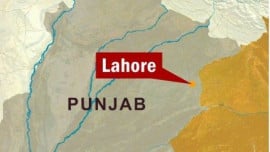
Sources told The Express Tribune that the commerce ministry has proposed to the government that the age limit for the import of cars be increased from three years to four or five years. The proposal will be tabled before Prime Minister Yousaf Raza Gilani and he will take the final decision in this respect.
“If the government takes this decision, it will bring to an end the monopoly of car manufacturers,” said Shahzada Saleem, President of Car Dealers Federation Lahore.
He said people did not have any other option but to buy expensive cars. He said that according to his information the manufacturers have started pressurising the government not to take a pro-consumer decision. The Competition Commission of Pakistan in its automobile sector study highlighted the anti-consumer practices of the manufacturing industry. The industry has constantly been increasing prices since a long time and the government has been a silent spectator.
In the current fiscal, the second year of the three-year trade policy, the government may fix the export target at $21.3 billion against projected imports of over $38 billion. The government is also considering allowing import of 22 more items from India, taking the number of items that are allowed to be imported from India to 1,956.
The commerce ministry has also proposed an increase in the depreciation of cars by 100 per cent to two per cent per month for a maximum of two years. The depreciation is the decline in the value of car calculated by taking into account the age of car. The older the car is the more benefit the importer gets.
The depreciation will favour the importer who claims refund of the duties it pays on the import. The importer can claim depreciation for a maximum of two years. Any decision to increase deprecation value from one per cent to two per cent would also help lower the cost of used cars.
The import of used cars is allowed only under special regimes. At present, the imports are allowed under the Gift, Baggage and Residence Transfer schemes.
The government has determined certain rules in this regard. For personal baggage, a minimum stay abroad for becoming eligible for the import is six months within the last seven months. For gifting a vehicle to a relative, the requirement is at least two years stay abroad during the past three years. A vehicle may be gifted only to a family member normally resident in Pakistan.
In case of cars with engine capacity of 1,800cc and above and 4x4 vehicle in new condition to be imported either under Personal Baggage or under Gift Schemes, the duty and taxes will be paid out of foreign exchange arranged by Pakistan nationals themselves or local recipient supported by bank encashment certificate showing conversion of foreign remittance to local currency.
Under the Special Regime, the taxes are levied on the basis of engine capacity, irrespective of the value of the vehicle and the optional or additional accessories. The accumulated amount of taxes, covering Custom Duty, Sales Tax, Income Tax and Capital Value Tax based on engine capacity, on import of the used vehicles meant for transport of passengers, are listed below. The duties run from $ 4400 to 26000 dollars depending upon the engine capacity.
Published in The Express Tribune, August 8th, 2010.













































COMMENTS (10)
Comments are moderated and generally will be posted if they are on-topic and not abusive.
For more information, please see our Comments FAQ